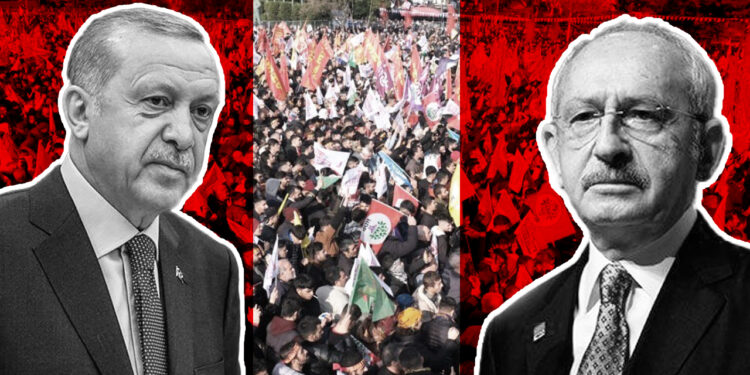
Several opinion polls show Erdogan trailing opposition candidate Kemal Kilicdaroglu, the main opposition candidate. Analysts say that if Erdogan falls out of power this time, it will be due to some missteps related to his economic policies.
But the situation started to change in the next decade. Popular support for Erdogan has declined over the past few years amid a devaluation of the currency and a rise in the cost of living. However, this trend of decreasing popularity started in 2013.
That year saw widespread protests against the Erdogan government across Turkey, with arrests of opponents. In addition, Turkey and other emerging markets faced a funding crisis due to the global crisis.
Since the beginning of 2013, foreign investors stopped investing in Turkey. In this, the country’s foreign exchange market, deposit, and loan market gradually became more and more under state control.
Seda Dimirip, the chairperson of the international relations department at Issik University in Istanbul, said that in the past, Erdogan could keep promises to his supporters. Now the economic crisis has intensified. His supporters still like and love him. But they are unhappy with the price they have to pay for this.
However, opinion polls show that Erdogan maintains a strong position among the conservative and nationalist rural working class. He and his ruling coalition still have a chance to win the presidential and parliamentary elections.
The Erdogan government says exports and investment have increased due to interest rate cuts. The minimum wage has increased in the last 18 months. Social assistance spending at record levels. And it has been possible to keep the economic growth rate at more than 5 in the last year. The unemployment rate has dropped from about 14 to 10 in the last two years.
However, since 2021, the interest rate has been reduced from 19 percent to 8 and a half percent, which is the highest inflation during Erdogan’s tenure. Inflation was over 85 percent last year.
According to the Gini index of income and wealth distribution, inequality in Turkey started to increase in 2011. The situation worsened in 2013. Erdogan’s major achievements during his rule from 2006 to 2010 were overshadowed.
Turkey is ranked 95th in the world in the Prosperous Country Index published by the Legatum Institute, a UK-based think tank. The country has fallen 23 steps since 2011 due to deterioration in governance and personal freedom.
In the 1970s, the Turkish economy was at its worst. When Erdogan’s AK Party was elected in 2002, the country was recovering from an economic crisis. Erdogan’s party came to power promising to end economic mismanagement and recession.
After inflation subsided, Turkey’s currency, the lira, continued to appreciate. No one could come close to Erdogan in terms of popularity.
But in 2013 the situation started to change. Protests against Erdogan’s government broke out in Istanbul’s Gezi Park, with security forces clashing with anti-government protesters in various places. Opponents were arrested.
Murat Uchar, a lecturer at Istanbul’s KOC University, said the early days of AKP’s rule saw progress in production. However, after the global recession in 2008-09, the situation began to change. Credit becomes an important driver of growth. In addition, the value of the Turkish currency fell. This is considered a possible reason for Turkey’s changing situation since 2013 or the decline of Turkish wealth in dollar terms.
Sabanci University assistant professor Ates Altinordu said a strict state of emergency was imposed shortly after the failed coup attempt to oust Erdogan in 2016. And that’s when Erdogan’s monopolistic rule began, with scheming advisers. And the level of economic failure has intensified.
Since Erdogan took office as President of Turkey in 2003, the situation in Turkey has improved in various areas, including healthcare infrastructure. Thanks to this, AKP won more than 12 elections later.
Before Erdogan came to power, Turkey’s infant mortality rate was similar to that of pre-war Syria. And now it’s like Spain.
Some AK Party economic officials have left the party in opposition to Erdogan’s tendency to cling to power. According to analysts, since then, the weaknesses of the party’s policies have been exposed.
Bulent Gultekin, a former governor of Turkey’s central bank, said everyone remembers the early days of Erdogan’s regime. He was then seen creating a participatory economic environment. But the reality is that through this, a section of people in the society became completely dependent on the government and it was not sustainable.
Gultekin believes that if Erdogan wins the election and maintains his economic policies, then in a sense there will be a total collapse.